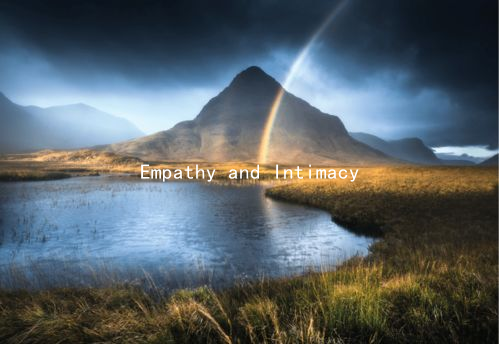Empathy and Intimacy: Navigating Sexual Expectations in Diverse Relationships
Empathy and Intimacy: Navigating Sexual Expectations in Diverse Relationships
In todays increasingly interconnected world, understanding and respecting diverse relationships has become essential. As people of various backgrounds come together, they bring with them unique perspectives on intimacy and sexuality. Empathy plays a crucial role in navigating these differences, allowing partners to build stronger connections and address sexual expectations more effectively.
Empathy involves the ability to put oneself in someone elses shoes, to understand their feelings, and to validate their experiences. In the context of relationships, particularly intimate ones, empathy fosters open communication and helps negotiate sexual expectations. When partners approach discussions about sex with a foundation of empathy, they create a safe space where both feel heard and valued.
The first step in this empathetic approach is active listening. Partners should engage in conversations without judgment, focusing on understanding each others desires, boundaries, and anxieties. This involves not only hearing the words but also interpreting the emotions behind them. Acknowledging a partners fears or hesitations can demystify the sexual experience and reduce anxiety, paving the way for more fulfilling encounters.
Cultural differences also play a significant role in shaping sexual expectations. What is considered sexually acceptable in one culture may be viewed differently in another. Therefore, it is vital to approach conversations about intimacy with an open mind. Partners should explore each others cultural backgrounds and discuss how these influence their views on sex. This understanding can foster deeper intimacy, as partners become more aware of what truly matters to each other.

Another important aspect of navigating sexual expectations is the establishment of boundaries. Every individual has unique comfort levels and limits regarding physical intimacy. Partners must openly discuss these boundaries to ensure that both feel secure and respected in the relationship. When partners are empathetic to each others limits, they create a foundation of trust, which is essential for any intimate relationship.
Additionally, discussing sexual health and safety cannot be overlooked. Openly addressing topics such as consent, contraception, and sexually transmitted infections (STIs) shows respect for one anothers well-being. Empathy plays a key role in these discussions by encouraging partners to prioritize each others health and comfort. Ensuring that both partners feel safe in their sexual explorations fosters greater intimacy and connection.
In some relationships, mismatched sexual expectations can lead to frustration and disappointment. Maintaining empathy allows partners to navigate these challenges constructively. Rather than placing blame or withdrawing, couples can engage in honest conversations to realign their expectations. This process can involve exploring desires beyond traditional sexual norms, allowing for the redefinition of intimacy that satisfies both partners.
Finally, it is important to recognize that intimacy is not solely defined by sexual activity. Emotional intimacy plays a pivotal role in how couples connect and meet each others needs. Nurturing emotional closeness through shared experiences, vulnerability, and support can enhance sexual intimacy. Understanding that intimacy comes in various forms enables partners to cultivate a deeper bond that transcends sexual expectations.
In conclusion, empathy is a powerful tool for navigating sexual expectations in diverse relationships. By fostering open communication, respecting cultural differences, establishing boundaries, discussing sexual health, and recognizing the importance of emotional intimacy, partners can build stronger connections. Ultimately, the journey toward fulfilling relationships is nourished by empathy—enabling individuals to understand and appreciate the unique tapestry of intimacy woven from their diverse experiences and perspectives.





